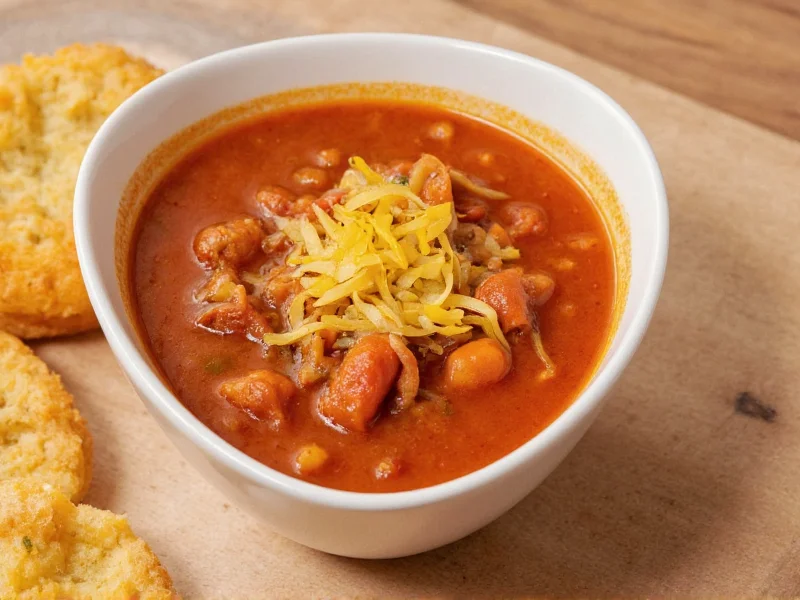Campbell Soup Company represents one of America's most enduring food brands with a legacy spanning more than 150 years. The company's journey from a small regional producer to a global food industry leader offers valuable insights into American culinary history and food manufacturing evolution.
A Historical Perspective on Campbell Soup
Joseph A. Campbell and Abraham Anderson established the company in 1869 in Camden, New Jersey, initially producing canned tomatoes, vegetables, jellies, and soups. The turning point came in 1897 when Dr. John T. Dorrance, a chemist with a degree from MIT, joined the company and invented condensed soup, reducing shipping costs by removing water from the product.
The distinctive red and white label design was introduced in 1898, becoming one of the most recognizable packaging designs in American consumer history. During World War II, Campbell's played a significant role in military food supply, producing millions of cans of soup for American troops.
| Key Historical Milestones | Year | Significance |
|---|---|---|
| Company Founded | 1869 | Initial production of canned vegetables and soups |
| Condensed Soup Invention | 1897 | Revolutionized soup production and distribution |
| Iconic Label Design | 1898 | Established enduring brand identity |
| National Expansion | 1920s | Became household name across America |
| Product Diversification | 1960s-1980s | Expanded beyond soup into other food categories |
Product Range and Market Presence
Today, Campbell Soup Company operates through three main segments: Meals & Beverages, Snacks, and International. The Meals & Beverages segment includes the iconic condensed soups, ready-to-serve soups, broths, pasta sauces, and beverages. The Snacks segment features well-known brands like Goldfish crackers, Pepperidge Farm, and Snyder's of Hanover.
Campbell's condensed soup varieties remain central to the brand's identity, with more than 30 different flavors available in the American market. Chicken Noodle soup consistently ranks as the top-selling variety, followed by Tomato and Cream of Mushroom. The company has adapted to changing consumer preferences by introducing lower-sodium options, organic varieties, and ready-to-serve microwaveable containers.
Nutritional Considerations and Product Evolution
Over the years, Campbell Soup has responded to evolving nutritional concerns by reformulating many products. The company has significantly reduced sodium content across its product line while maintaining flavor profiles. Current nutritional facts for Campbell's condensed soups typically show approximately 100-150 calories per half-cup serving, with sodium levels ranging from 400-800mg depending on the variety.
The company has also expanded into premium and specialty product lines, including organic soups, gluten-free options, and international flavor profiles that reflect America's increasingly diverse culinary landscape. These adaptations demonstrate Campbell Soup's ability to balance tradition with innovation in response to changing consumer demands.
Market Position and Industry Impact
Campbell Soup maintains a significant market share in the U.S. soup industry, though facing increased competition from both traditional food companies and newer health-focused brands. The company's annual revenue exceeds $8 billion, with soup products accounting for approximately 40% of total sales.
What distinguishes Campbell Soup in today's market is its combination of heritage and adaptability. While preserving its core product lines that have defined American comfort food for generations, the company has successfully expanded into adjacent categories through strategic acquisitions and product development. This dual approach has allowed Campbell to remain relevant in an increasingly competitive and health-conscious food marketplace.
Looking Forward: Innovation and Sustainability
Recent initiatives focus on sustainability throughout the supply chain, from responsible sourcing of ingredients to packaging innovations. Campbell has committed to reducing environmental impact while maintaining product quality. The company's research and development efforts continue to balance traditional recipes with contemporary health considerations, ensuring that classic favorites remain part of modern American pantries.
Frequently Asked Questions
When was Campbell Soup Company founded?
Campbell Soup Company was founded in 1869 by Joseph A. Campbell and Abraham Anderson in Camden, New Jersey. The company began as a producer of canned vegetables and soups, later revolutionizing the industry with the invention of condensed soup in 1897.
What is the most popular Campbell Soup variety?
Chicken Noodle soup has been Campbell's best-selling variety for decades. Introduced in the 1930s, it has maintained its position as America's favorite condensed soup, particularly valued as a comfort food during cold and flu seasons.
Does Campbell Soup offer low-sodium options?
Yes, Campbell Soup offers multiple low-sodium and reduced-sodium options across their product line. Many varieties now contain 30-50% less sodium than traditional formulations while maintaining flavor through recipe adjustments and ingredient innovations.
How has Campbell Soup adapted to changing consumer preferences?
Campbell Soup has expanded beyond traditional canned soups to include organic varieties, ready-to-serve microwaveable options, international flavor profiles, and specialty dietary options including gluten-free and plant-based products. The company has also reduced sodium content across many products and improved ingredient transparency.
What other brands does Campbell Soup Company own?
Beyond its namesake soup products, Campbell Soup Company owns several well-known brands including Pepperidge Farm, Goldfish crackers, Pace Foods, Swanson broths, Pacific Foods, and Snyder's of Hanover. These acquisitions have diversified the company's product portfolio beyond traditional soup offerings.











 浙公网安备
33010002000092号
浙公网安备
33010002000092号 浙B2-20120091-4
浙B2-20120091-4